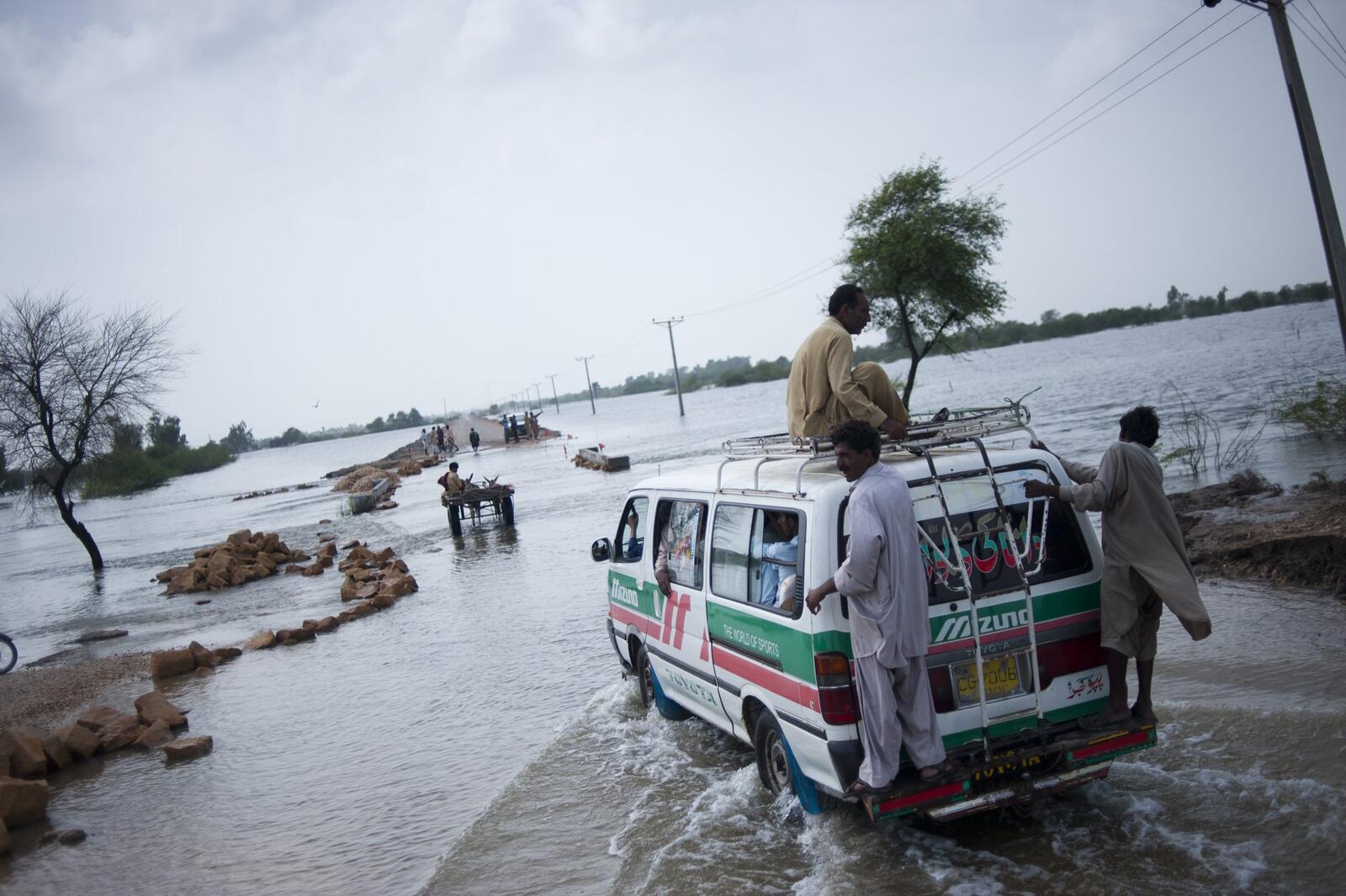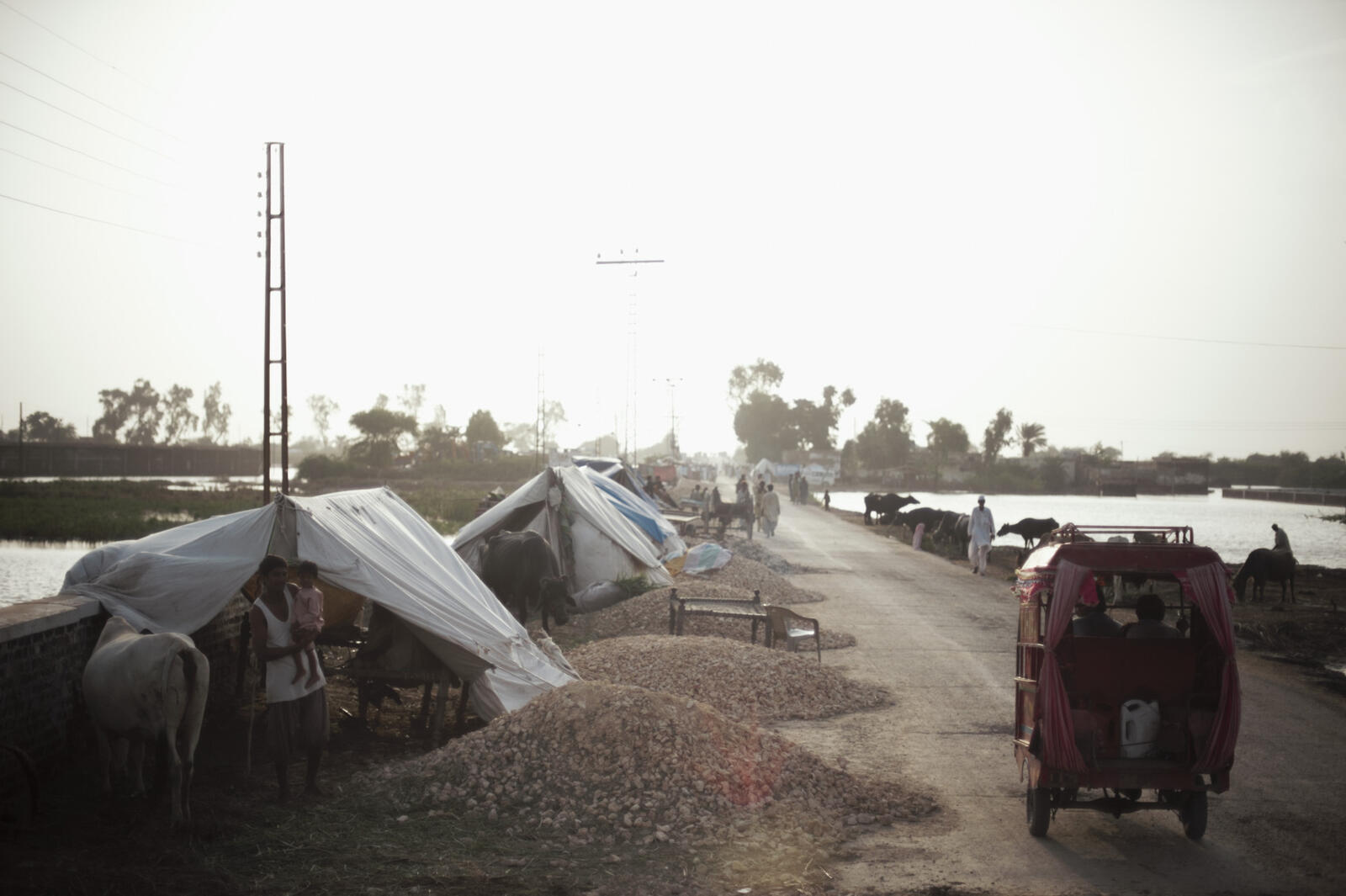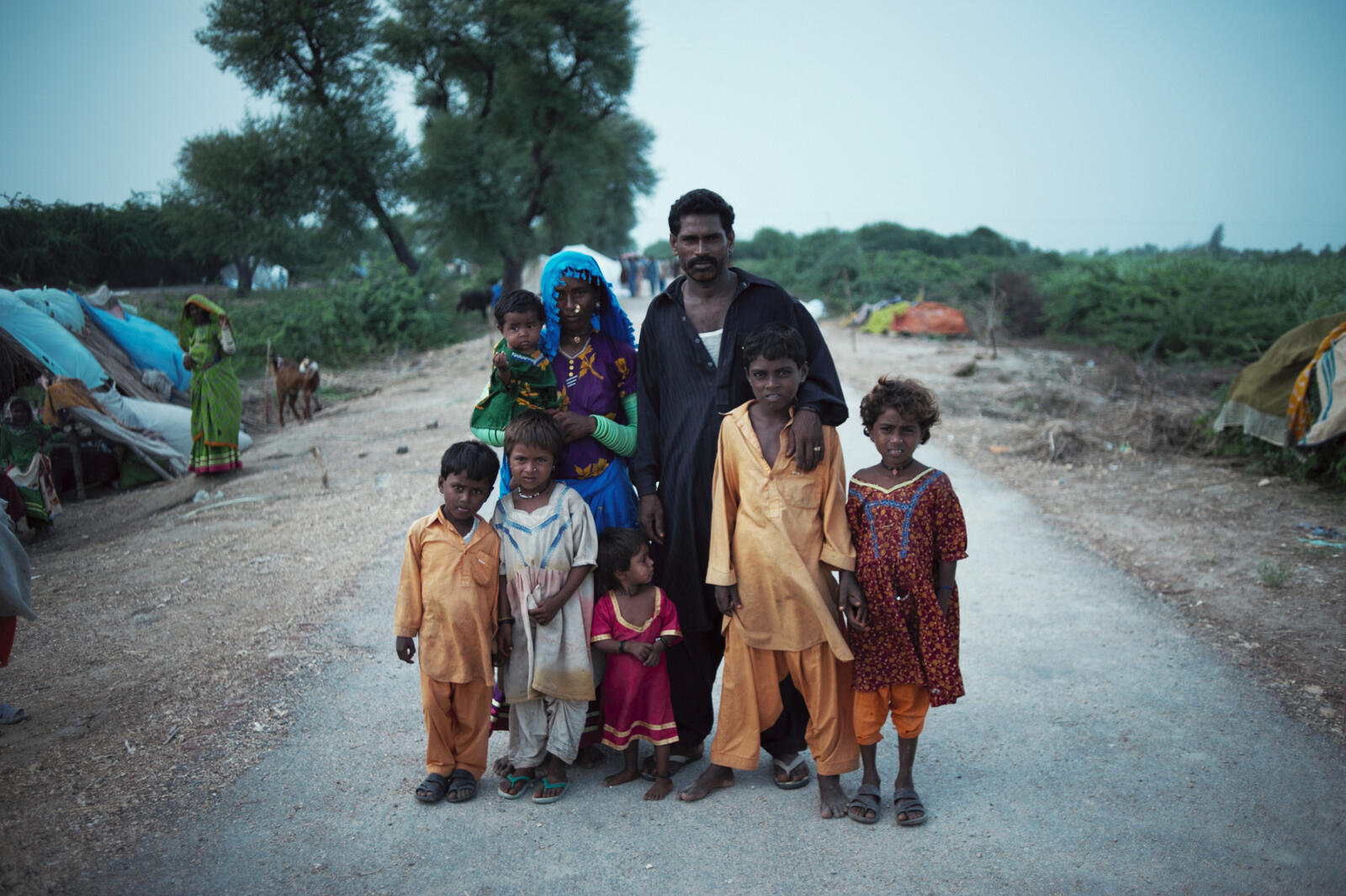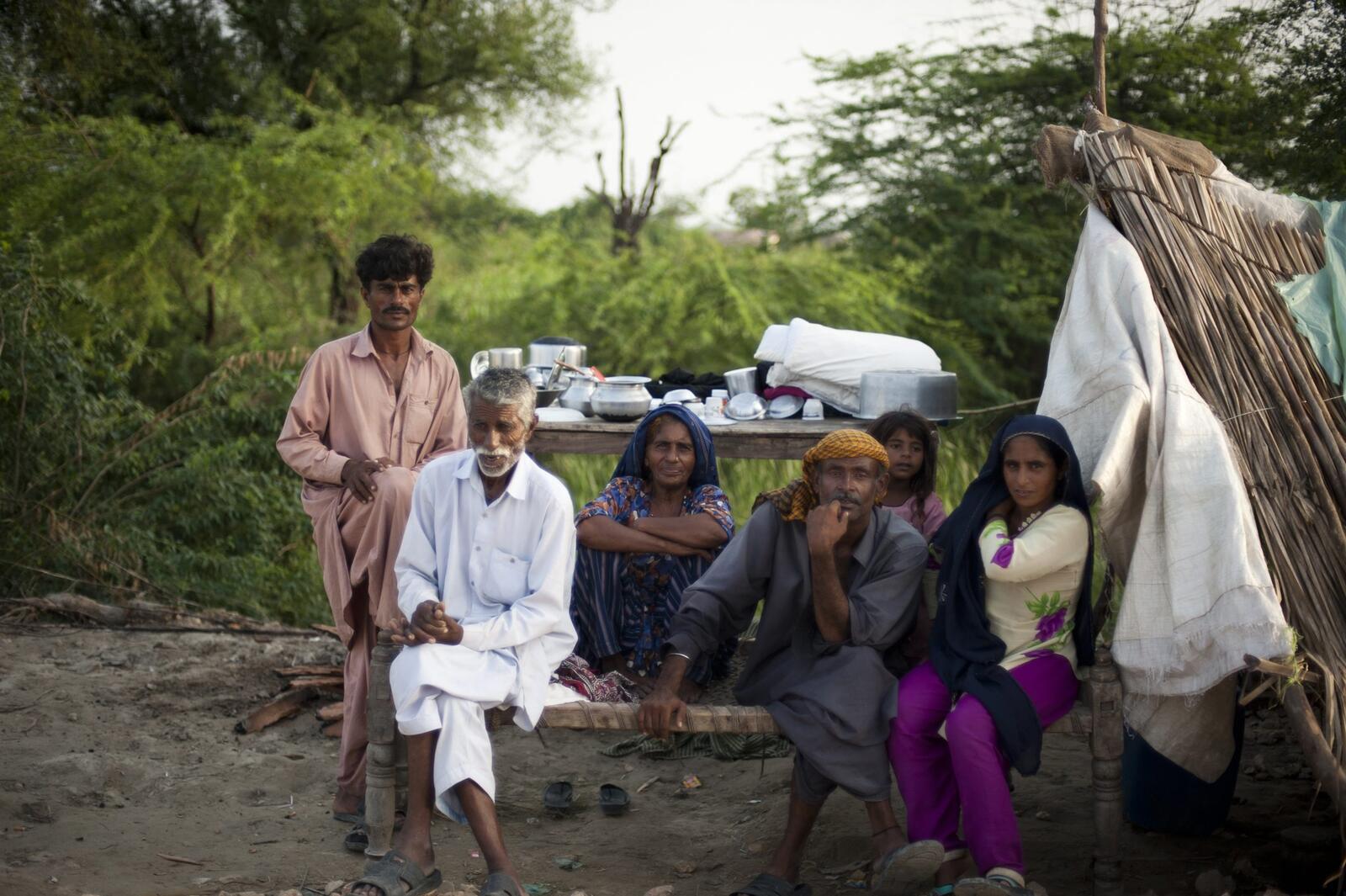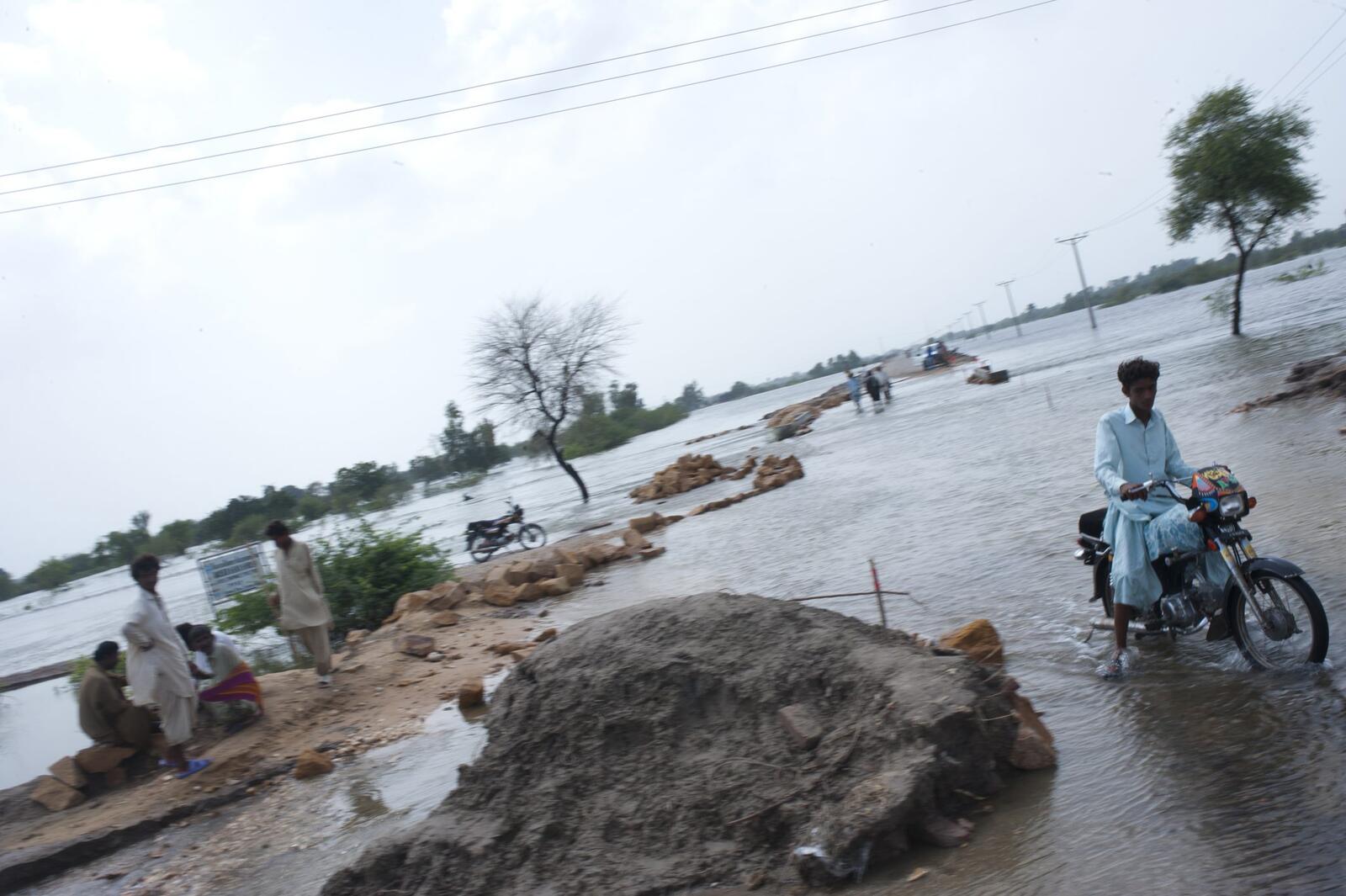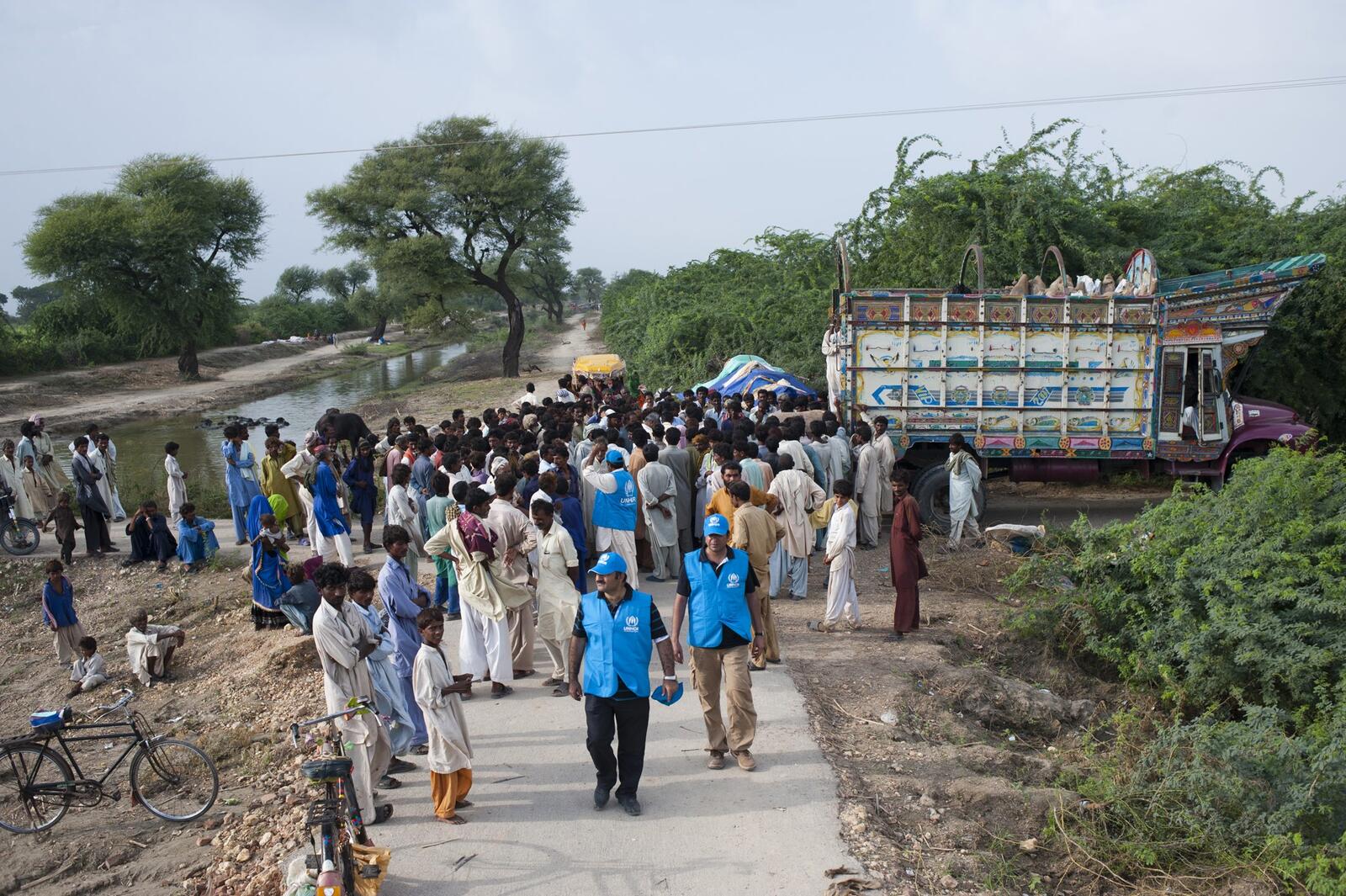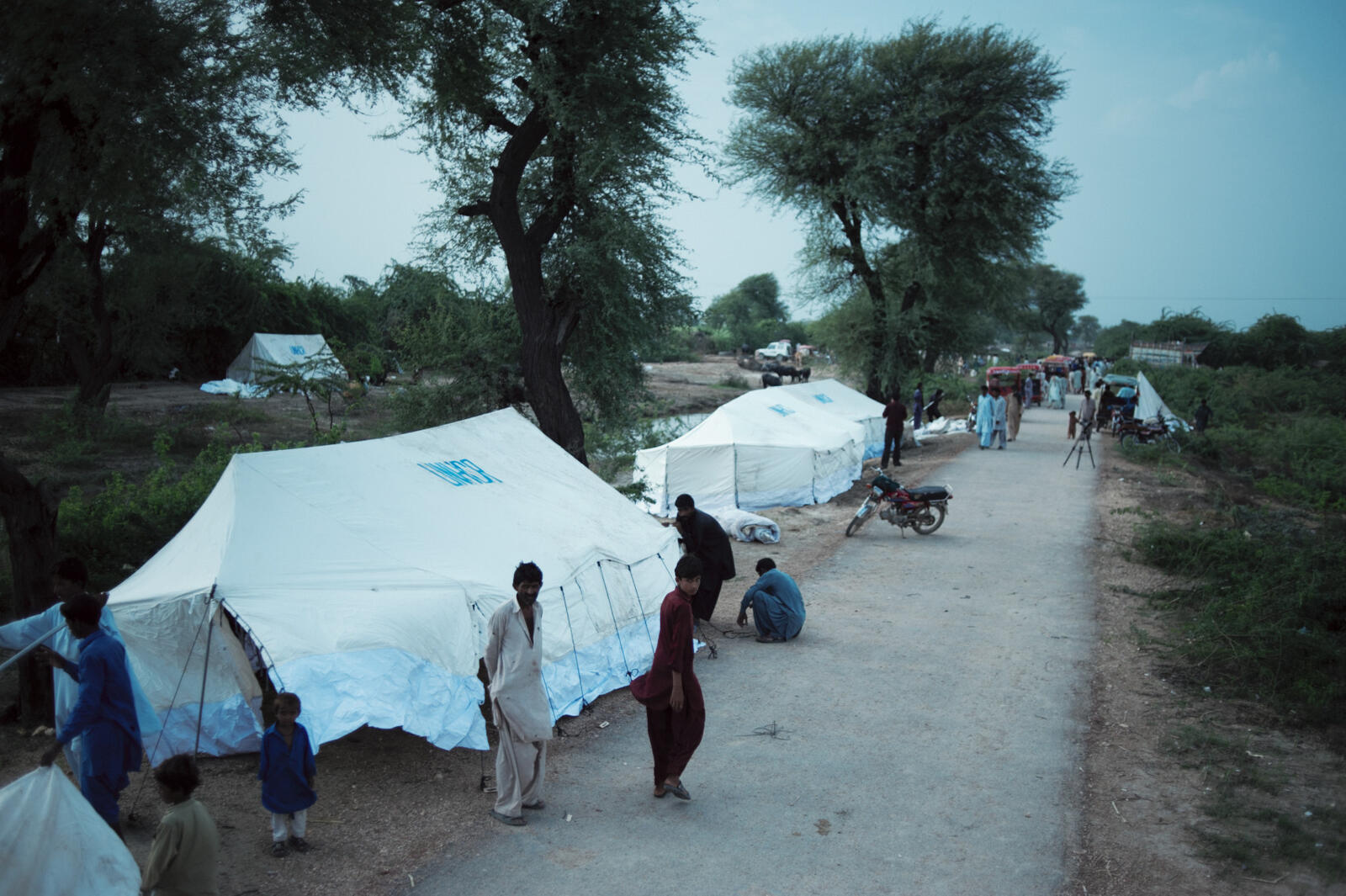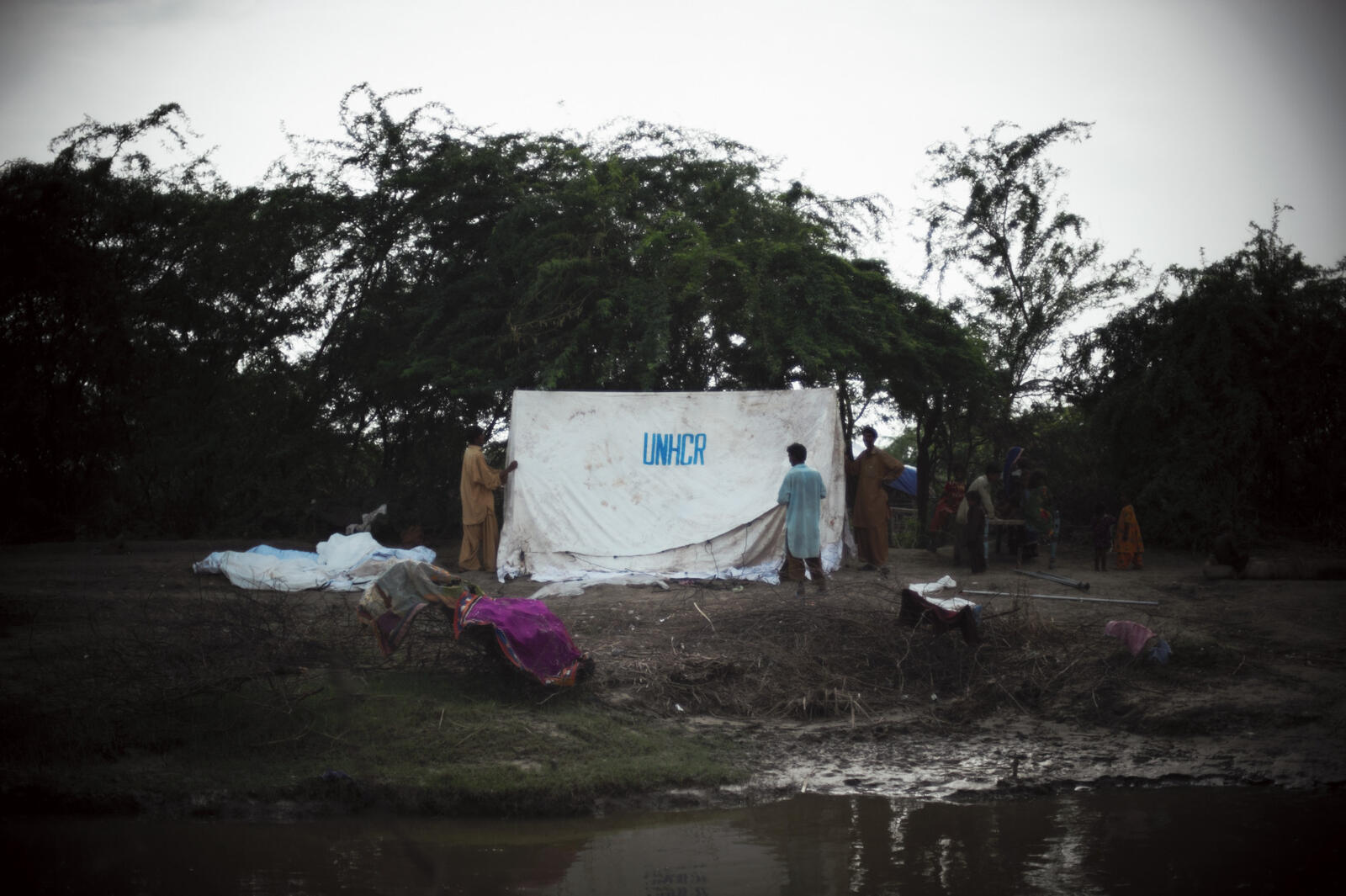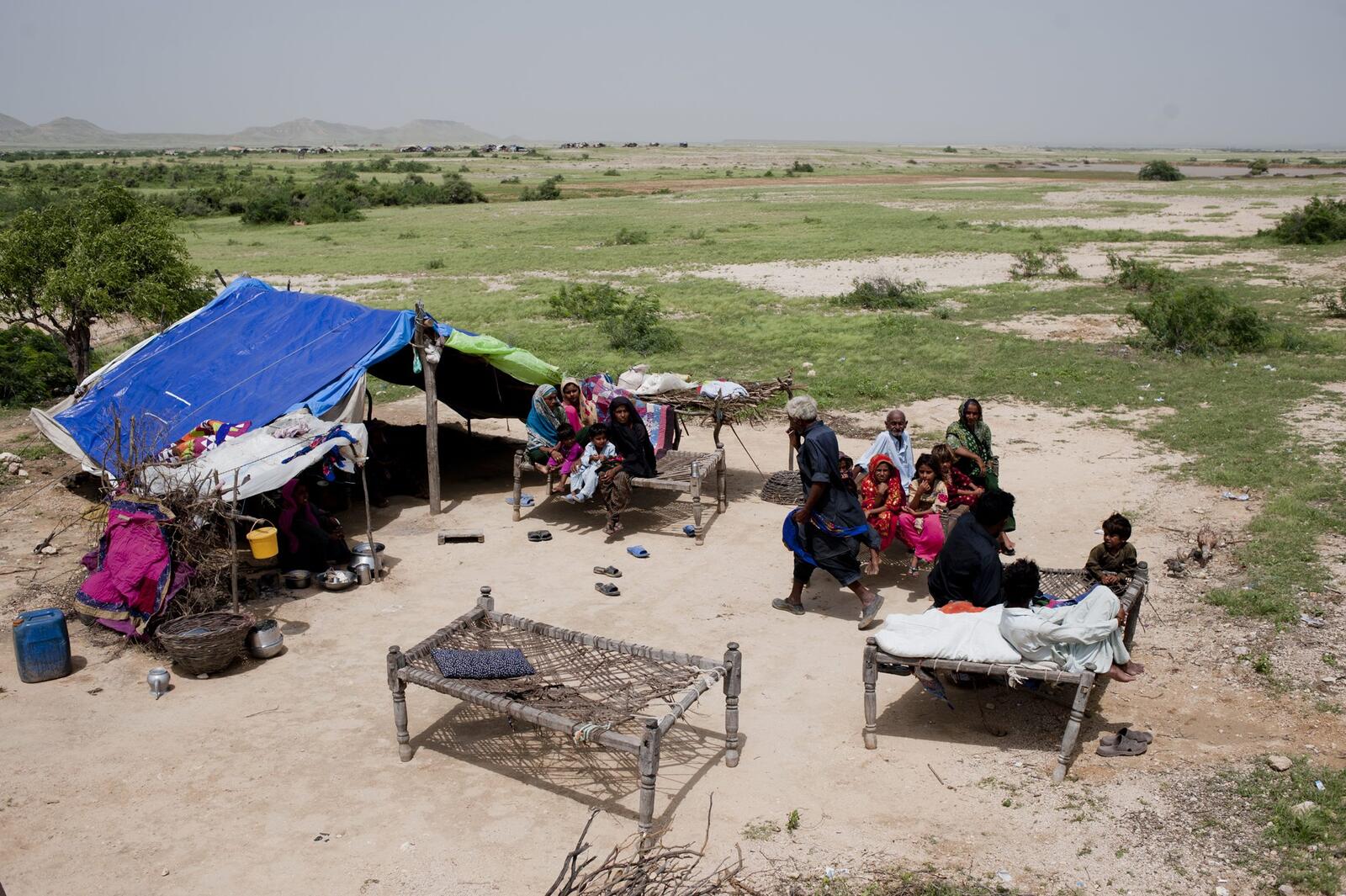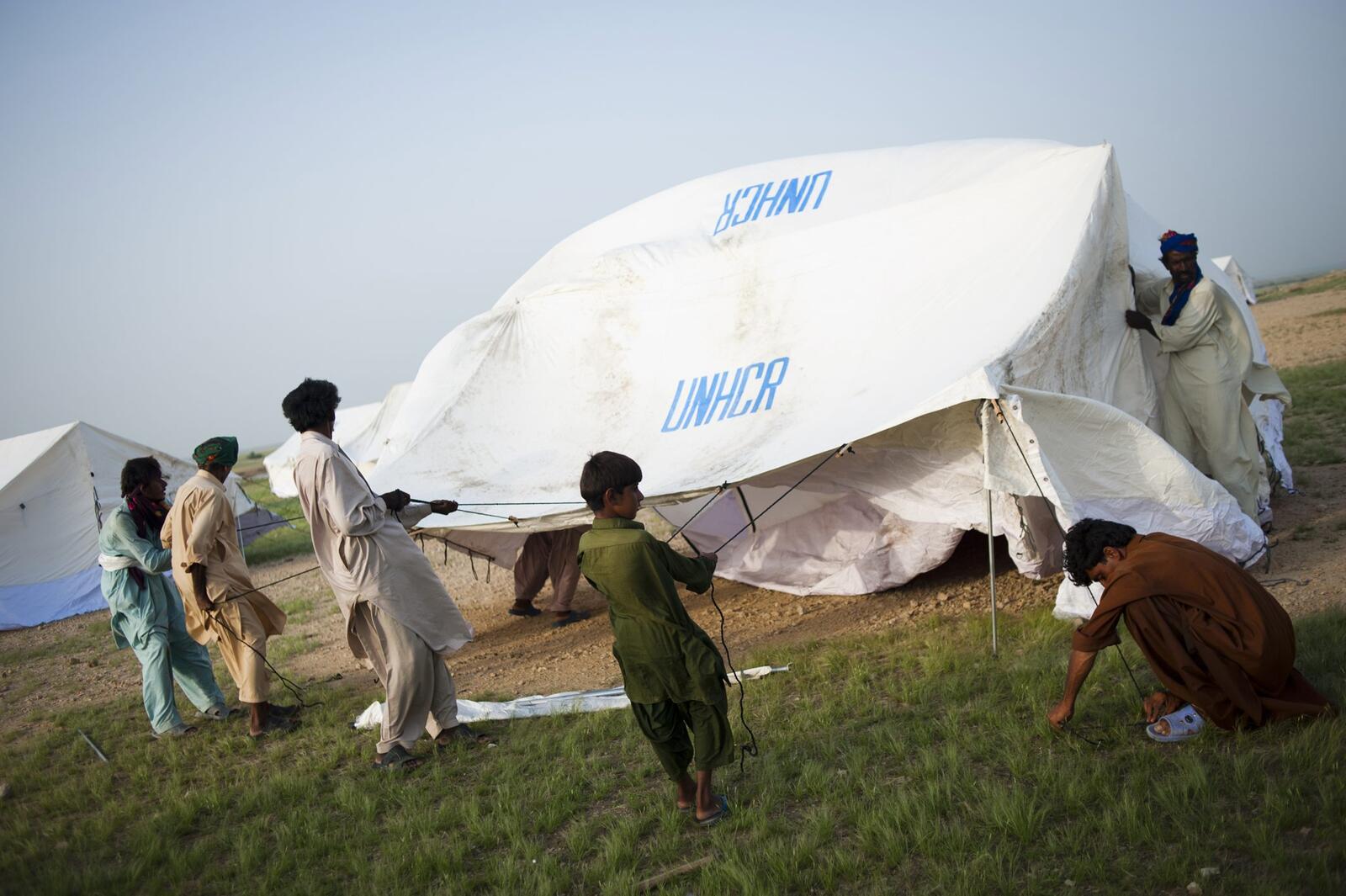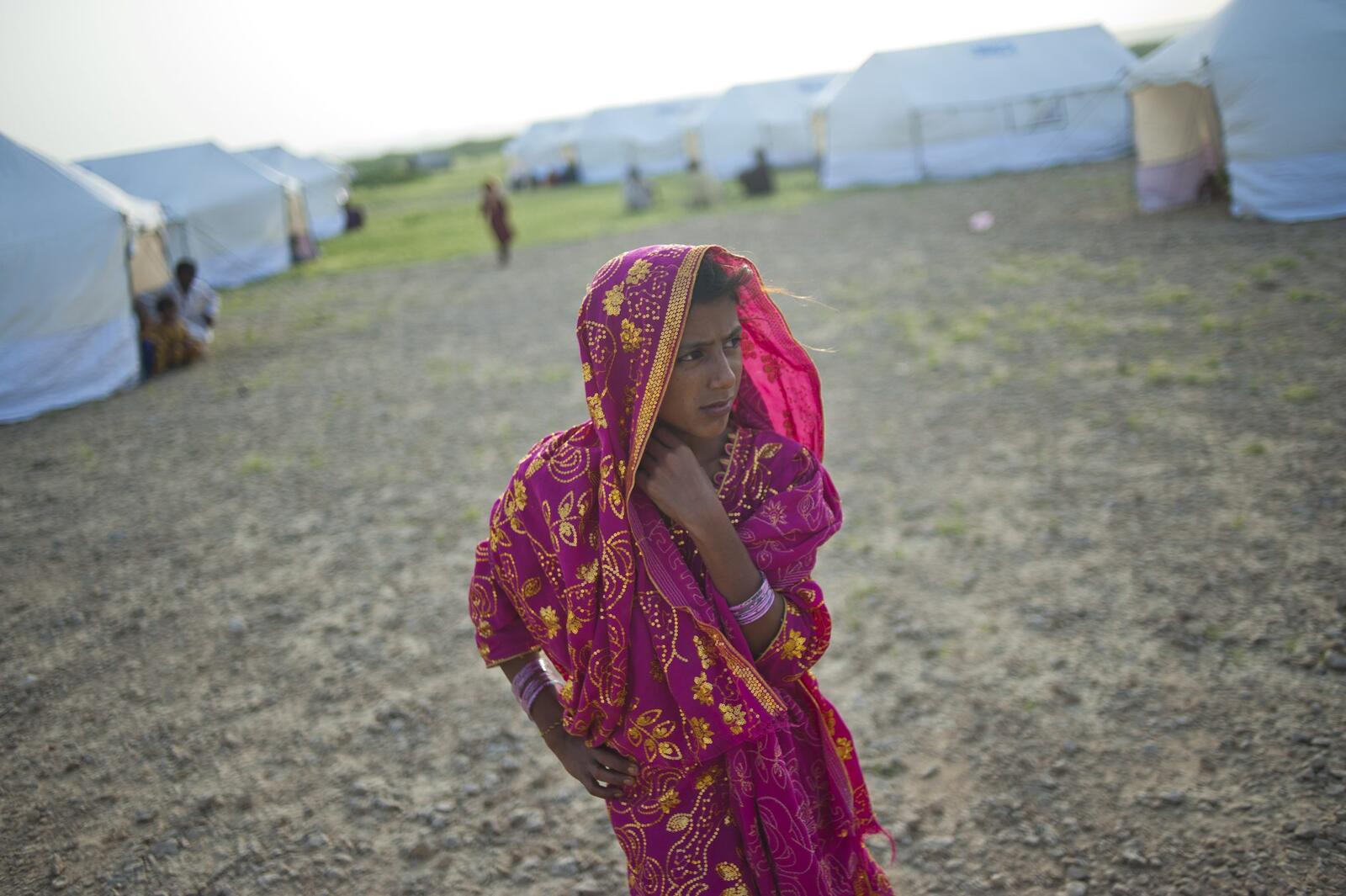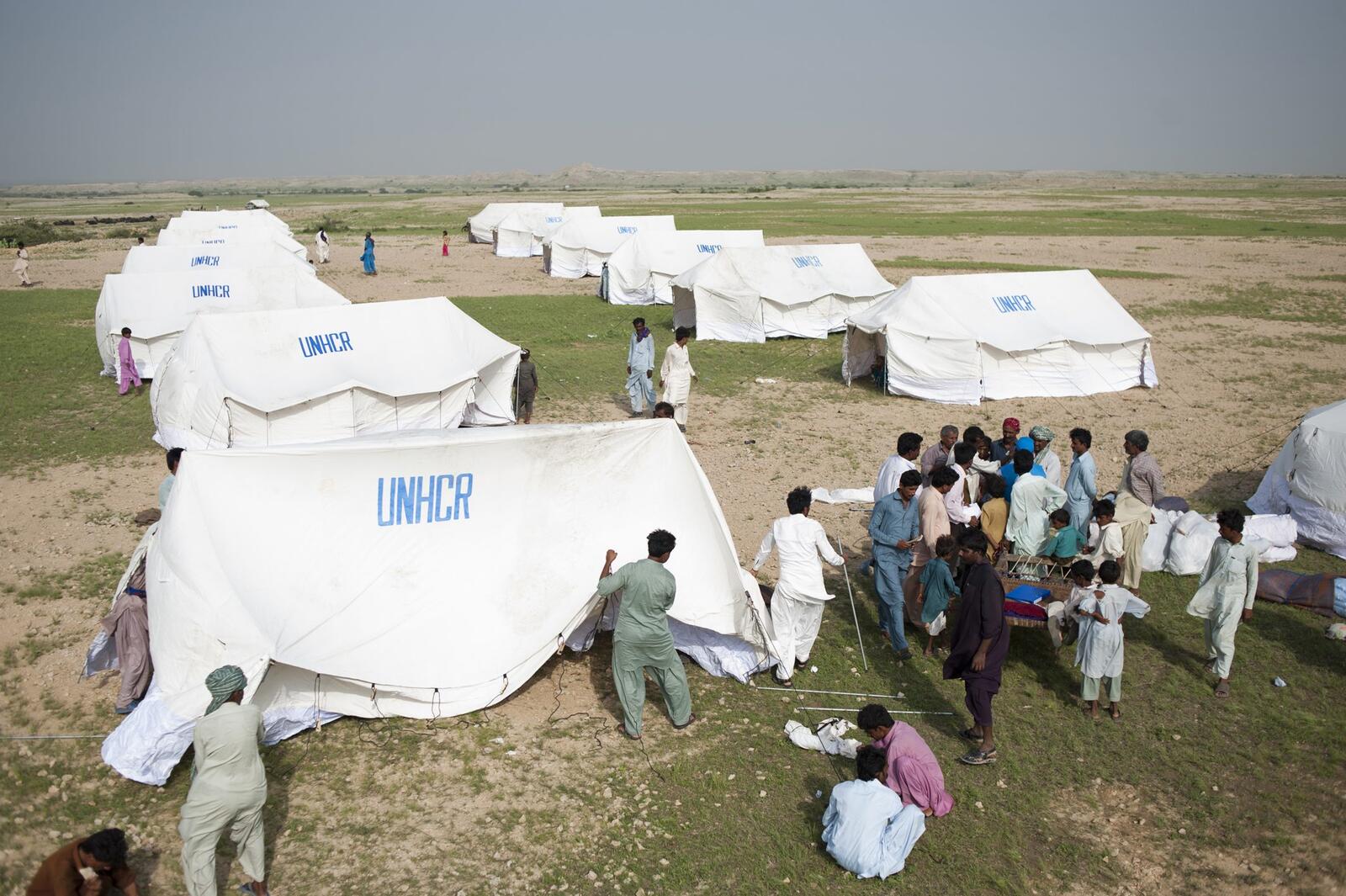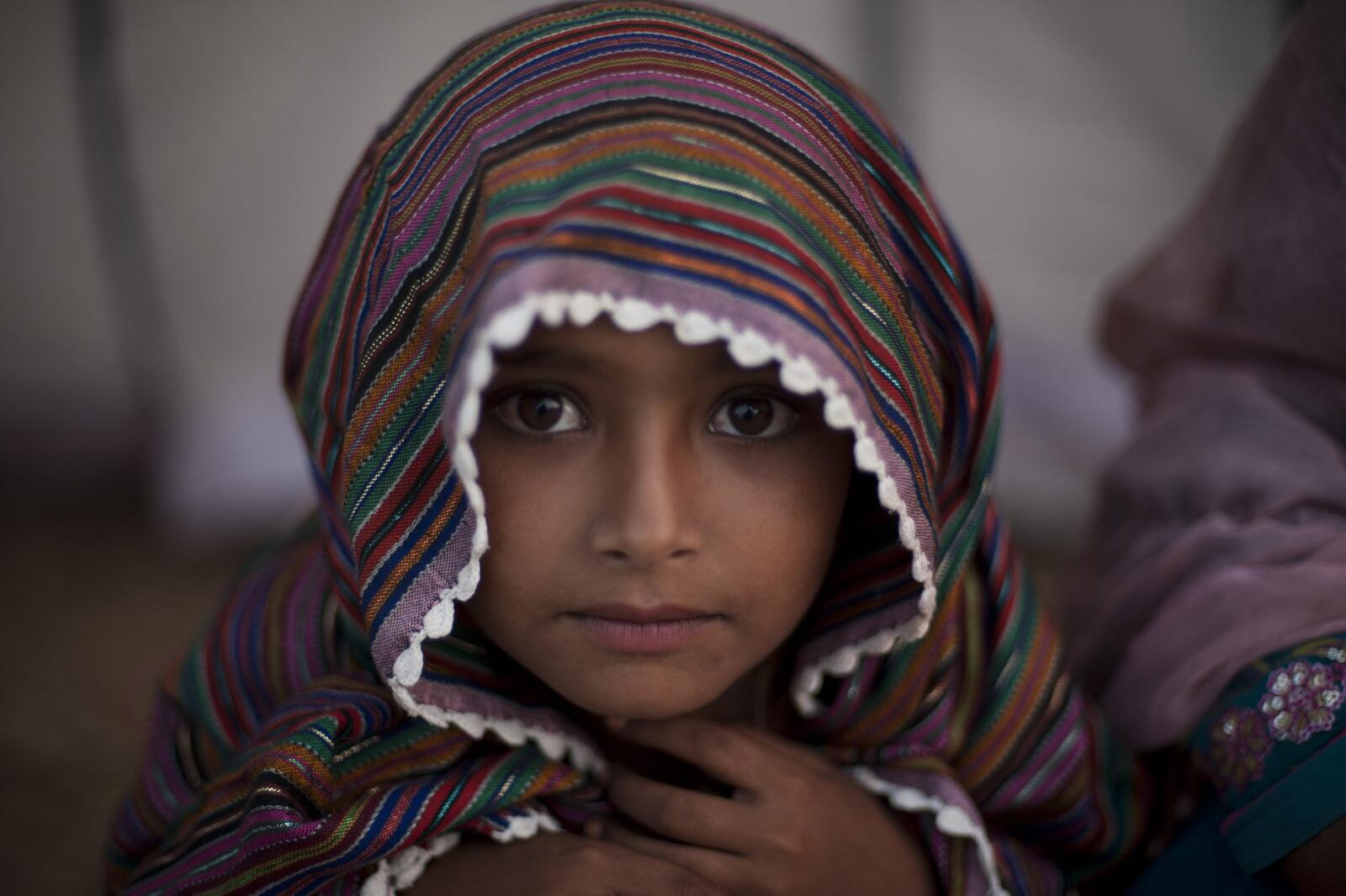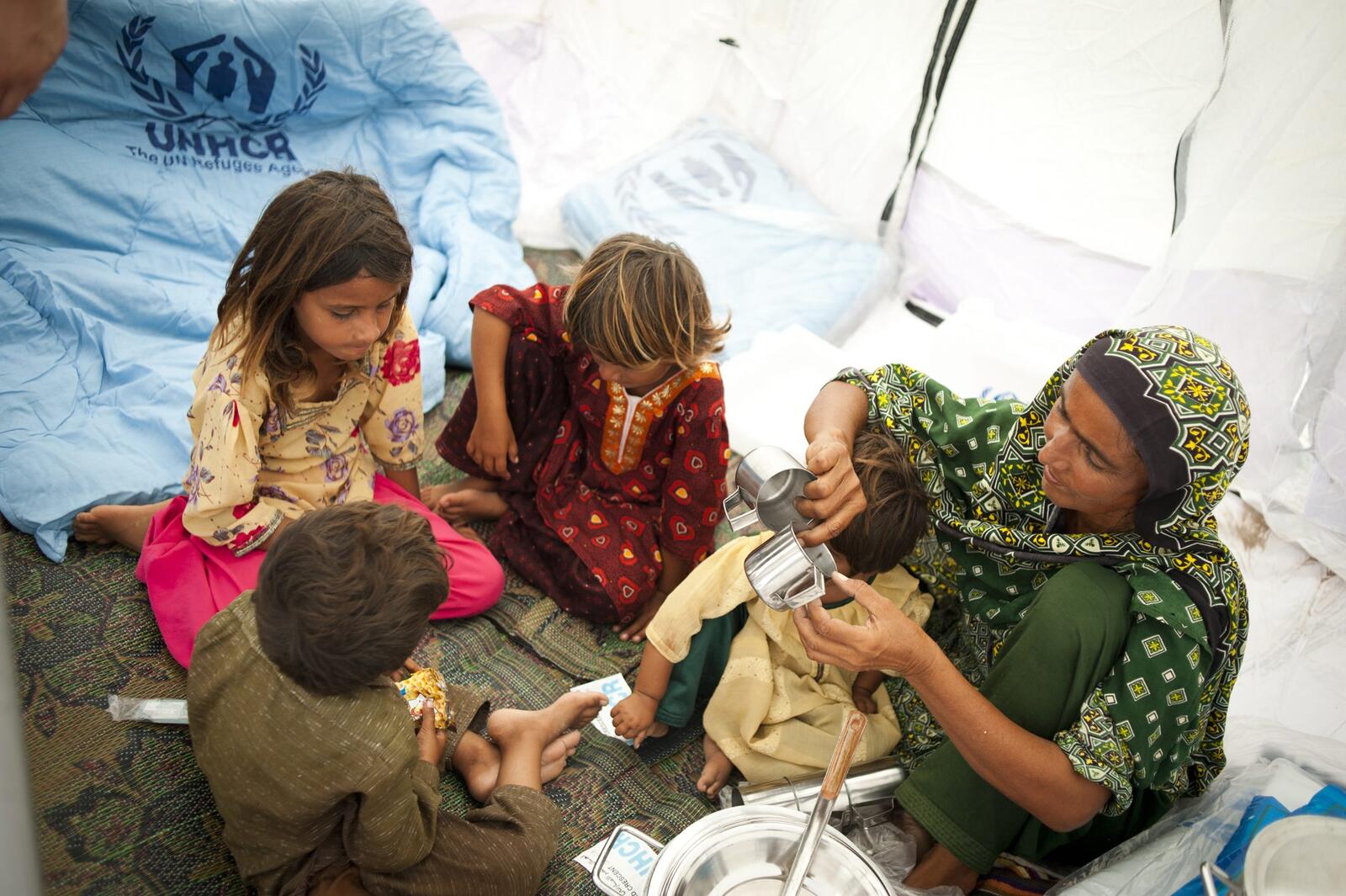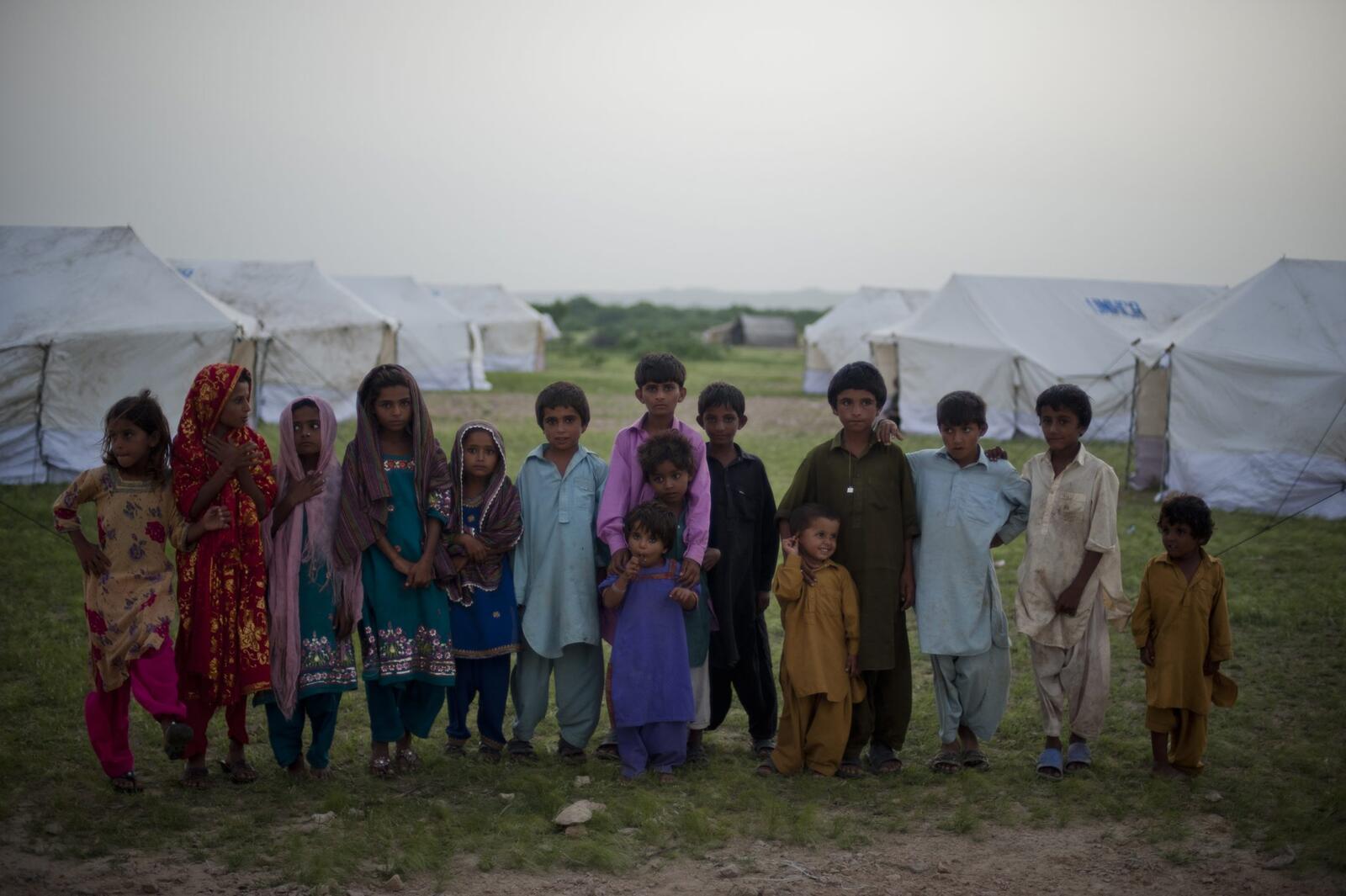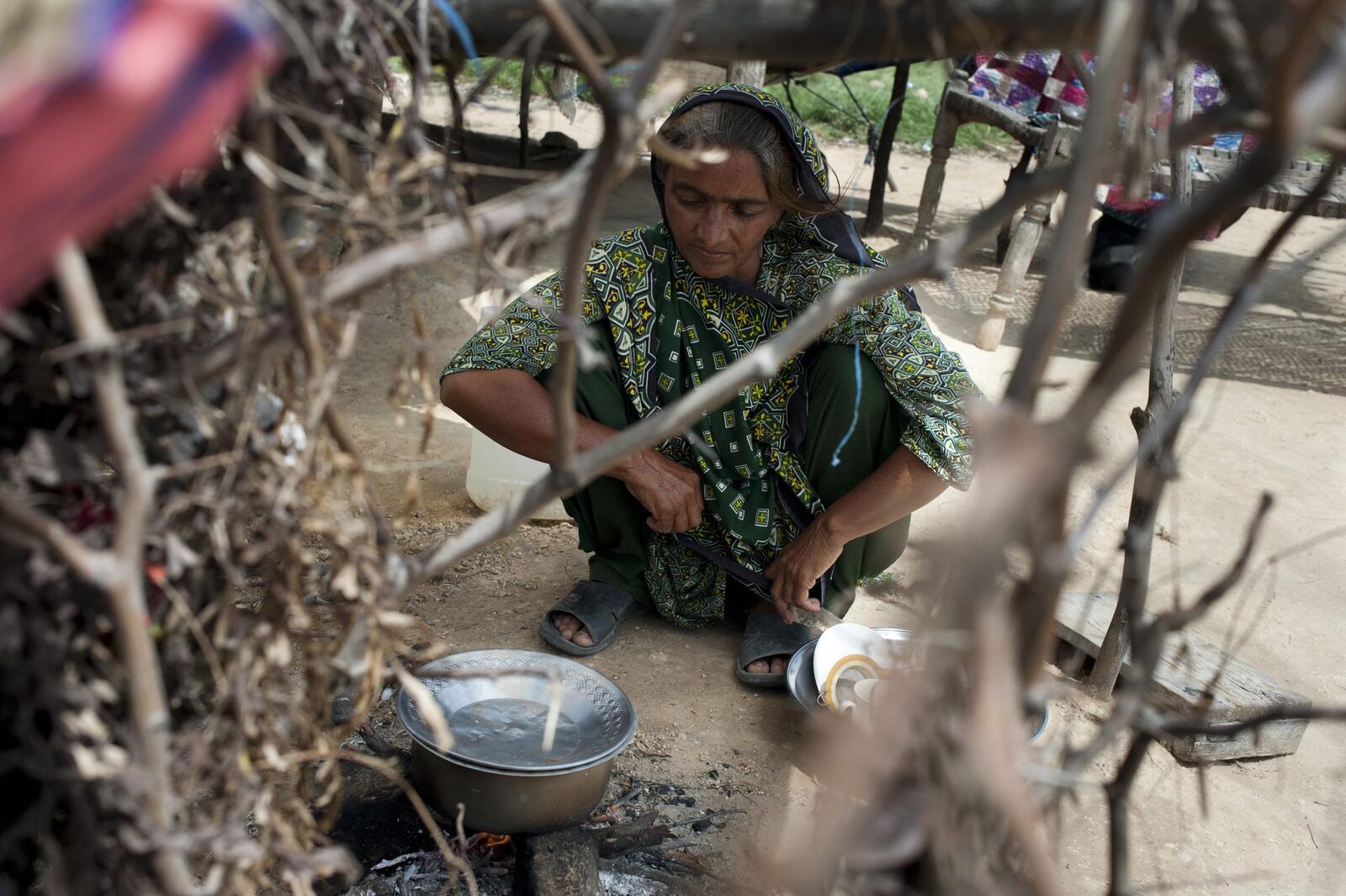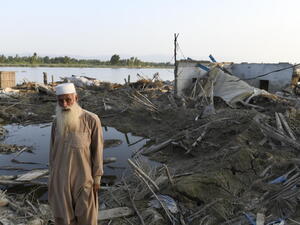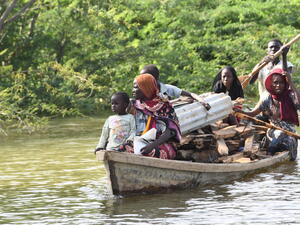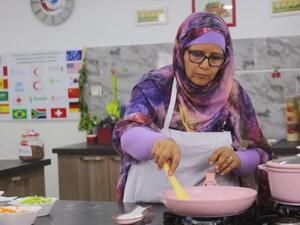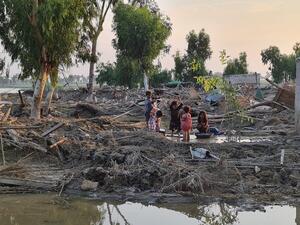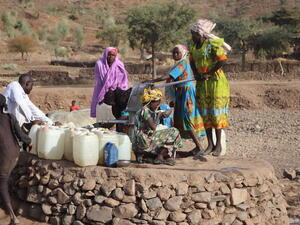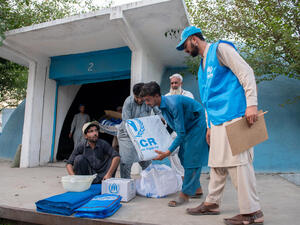UNHCR steps up assistance to Pakistan flood victims
UNHCR steps up assistance to Pakistan flood victims

UNHCR has begun distributing tents and other emergency supplies to thousands of families left homeless by the floods. The tents are pitched where ever dry ground can by found.
BADIN, Pakistan, September 20 (UNHCR) - UNHCR teams are ramping up their distribution of tents and other emergency aid supplies to families displaced by severe flooding in Pakistan. The refugee agency has committed to supplying 70,000 tents and 70,000 emergency aid kits containing household items as well as other relief items to flood victims.
In southern Pakistan's Sindh province, which has been particularly hard hit, UNHCR has delivered 2,000 tents and 2,000 aid kits containing items such as jerrycans, blankets and sleeping mats as well as four thousand plastic sheets, which can be used as basic shelters. Many of the families displaced by the floods continue to live in makeshift shelters.
More than 5 million people have been affected by this year's floods and government estimates put the number of families in urgent need of emergency shelter at more than 200,000. Many of those suffering now after heavy monsoon rains had only begun to recover from last year's devastating floods.
"They have been displaced twice," said Waseem Rehman, a UNHCR staff member working on the aid distribution in the Badin district of Sindh province. "They first spent days living under the open sky. Then they took refuge in a safer area. We're still identifying new areas and individuals that are in need of assistance."
The distribution of the emergency supplies has so far focused on the districts of Badin and Thatta, with 1,000 tents, 1,000 aid kits and 2,000 plastic sheets going to each location.
Eight thousand more tents, as well as aid kits and plastic sheets are being trucked from UNHCR's warehouse in Peshawar in north-west Pakistan. The journey can take several days. The supplies are headed to additional flood-affected districts in Sindh.
In Badin and Thatta, UNHCR has been working with the National Rural Support Programme, a Pakistani aid group, which is delivering the items and establishing small tent villages of less than 100 families. The scarcity of dry land on which to pitch the tents remains a challenge.
The majority of the families caught up in the floods earned their living through agriculture. Cotton and rice crops that were nearly ready to be harvested have been wiped out. Unless the floodwaters recede quickly, farmers will not be able to plant wheat. Women in the flood zone would normally have supplemented the family income by working as cotton pickers, a wage that is no longer available.
Before receiving a UNHCR tent, Obhayo Babar had been living with his son in an improvised shelter on a piece of high ground in the Badin district. "I have faced two disasters. Last year, it came suddenly in the middle of the night. The roof of our house collapsed, killing my wife," he said. "Today we are again homeless due to the heavy rainfall. We have suffered a lot, but we are thankful for this assistance as nobody had yet come to this far-flung area."
UNHCR recently led a rapid protection assessment in Sindh. Focus group discussions were conducted with nearly 6,000 men, women and children, as well as with community leaders and local authorities.
Their report revealed the difficulties vulnerable groups such as female-headed households, people living with disabilities, and minorities are facing in accessing assistance. Children have become separated from their families and many people have lost government documents, such as national identity cards, that could hinder their access to some types of assistance.

